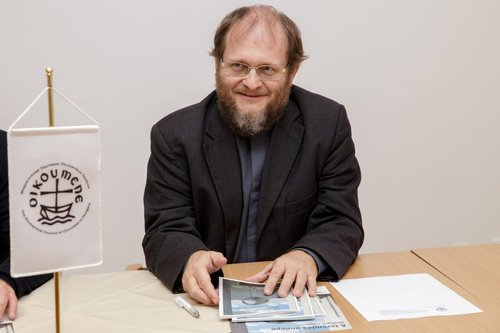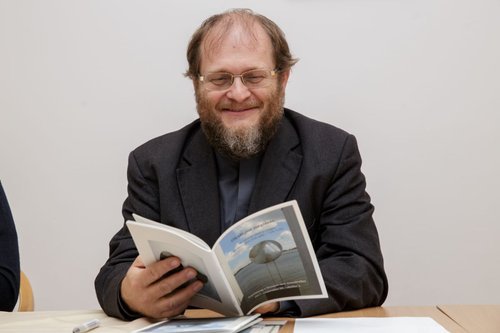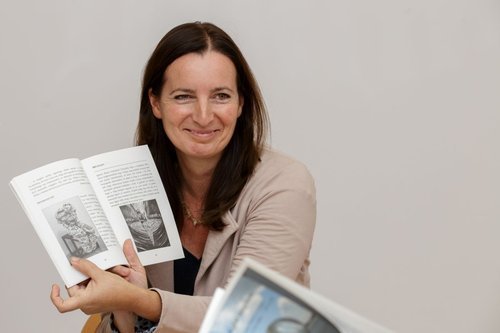The central thought for this year’s creation week “God so loved the world, that he gave his only begotten Son…” (John 3:16) was presented to congregations in the Reformed Church in Hungary by The Ecumenical Creation Protection Working Group in Budapest.
Hungarian Christians celebrate creation week between September 24th and October 1st. This year marks the ninth anniversary of this celebration, focused on the protection of God’s creation and the importance of human responsibility to that project.
Reformed, Lutheran, Methodist, and Catholic Theologians and Ecologists worked together to create a guide for congregations that combines spiritual guidance with practical information on how to celebrate creation week.
The celebration of Creation week is becoming increasingly important.
Even though global wealth has doubled since 2000, the poor have gotten poorer and the increases in wealth have gone to the rich. August 8, 2016 marked “Overconsumption day” where, while global population had grown ‘only’ 400% in the last century, global production had grown 2000%.
Ever since the second world war Cities have expanded continuously, and since 2007 over half of all people live in cities and towns.
Greenhouse gas emissions are the cause of climate change, and cities are a major producer of these gasses; 70% of greenhouse gas emissions are from cities.
This increase in the standard of living, in population, and in urban life all serve as strains on the finite resources of our earth.
Because of these and the similar worrying processes, the ecumenical creation protection team has chosen the motto “ecological repentance.” Do not misunderstand, this is not a new kind of repentance, it is repentance in the sense of the Catholic theological term, which means “Suffering the consequences of our conversion to Christ for our relationship with the world.” as Father Mario Nobilis said at this Thursday’s press conference.

Renewing our environment
The theme of repentance goes well with the memorial year of the Reformation: Martin Luther wrote five hundred years ago: “When our Lord and Master, Jesus Christ, said: “come back,” he wanted the life of believers to be completely repentant.” The Second Vatican Council carried similar themes about repentance.
The term “ecological conversion” as an expression of turning towards environmental awareness, was used by Pope John Paul II for the first time when, in 2001 he said, “It is therefore our duty to uphold and encourage “ecological conversion” which has made humanity more vulnerable to the catastrophe towards which it is moving in recent decades.
Environmentalism can only be fully effective if it does not remain a “physical environmentalism” rather it must become a “human environmentalism” through the examination of systems of living organisms and by using those examinations to approach the Creator’s plan more closely in concert with the environment. “
As in our individual conversions to the only mediator of Christ’s mercy, Christ, we must continually re-start our efforts to renew the world in accordance with God’s will, following this conversion with all of our heart and strength and mind. These two requirements: that we seek Christ’s mercy, and that we continually re-orient ourselves towards doing Gods will, are what Luther spoke of, and these requirements are echoed in the teaching of the Second Vatican Council.

The later requirement — repentance — the struggle in the world — is a necessary consequence of conversion — the first requirement.
Guide for congregations
The guide was presented by Boglárka Szűcs, the coordinator of The Reformed Ecological Movement.
“The ecological and economic crisis of the world is also an ethical and moral crisis, so it is important for countries to deal with these issues.” the environmental expert said. This sentiment was echoed by the conclusion that members of the Ecumenical Creation Protection Working Group came to- “Once God loved the world by giving his only begotten Son, then we no longer have any valid reason not to love the world.”

The Booklet, delivered by the Ecumenical Council of Hungarian Churches to 1,885 congregations, contains a brief meditation, a prayer, and thoughtful information about ecological processes for each of the days of creation week. In addition, the booklet also contains a variety of artwork on the subject of creation and good practices for promoting change.
Reformatus.hu
Translated by Györgyi Csiba
Edited by Bastian Bouman